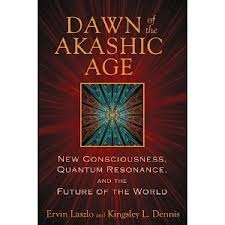
A preview of the post-mechanistic, holistic world in 2020 and 2030 as well as a map of the obstacles we must overcome to get there • Reveals how the youngest generation is seeding the shift in consciousness • Explains how society will be reorganized into grassroots networks like those revealed by quantum physics and experienced through social media • With contributions from futurist John L. Petersen, ex-CEO of Sanyo Tomoya Nonaka, media activist Duane Elgin, and other visionaries The world is changing. The transition from the mechanistic worldview to one that recognizes the interconnectedness of all life is upon us. It is the dawning of the Akashic Age. The Akashic field that connects the universe is now recognized by cutting-edge science. What we know about communication, energy, and consciousness is rapidly evolving in tandem with the new quantum worldview. Many adults are consciously evolving to meet the transitional challenges at hand, while today’s youth have arrived already hard-wired with the new consciousness. Rising from the ashes of the old systems, this Phoenix generation of radical change agents is seeding our evolution and spiritual transformation, a process that will continue over the next few decades. Authors Ervin Laszlo and Kingsley Dennis look at the chief engine of the coming changes—the growing global understanding of nonlocality—and the development of practical applications for it. They examine how the new values and new consciousness taking hold will reorganize society from top-down hierarchies into grassroots networks like those revealed through quantum physics’ understanding of energy and information waves and experienced daily by millions through social media. With contributions from visionary thinkers such as futurist John L. Petersen, ex-CEO of Sanyo Tomoya Nonaka, media activist Duane Elgin, systems scientist Alexander Laszlo, and spiritual economist Charles Eisenstein, this book explores the future of education, spirituality, the media, economics, food, and planetary citizenship as well as the expansion of consciousness necessary to reach that future.
Author

Ervin Laszlo is a systems philosopher, integral theorist, and classical pianist. Twice nominated for the Nobel Peace Prize, he has authored more than 70 books, which have been translated into nineteen languages, and has published in excess of four hundred articles and research papers, including six volumes of piano recordings. Dr. Laszlo is generally recognized as the founder of systems philosophy and general evolution theory, and serves as the founder-director of the General Evolution Research Group and as past president of the International Society for the Systems Sciences. He is also the recipient of the highest degree in philosophy and human sciences from the Sorbonne, the University of Paris, as well as of the coveted Artist Diploma of the Franz Liszt Academy of Budapest. Additional prizes and awards include four honorary doctorates. His appointments have included research grants at Yale and Princeton Universities, professorships for philosophy, systems sciences, and future sciences at the Universities of Houston, Portland State, and Indiana, as well as Northwestern University and the State University of New York. His career also included guest professorships at various universities in Europe and the Far East. In addition, he worked as program director for the United Nations Institute for Training and Research (UNITAR). In 1999 he was was awarded an honorary doctorate by the Canadian International Institute of Advanced Studies in Systems Research and Cybernetics. For many years he has served as president of the Club of Budapest, which he founded. He is an advisor to the UNESCO Director General, ambassador of the International Delphic Council, member of both the International Academy of Science, World Academy of Arts and Science, and the International Academy of Philosophy.